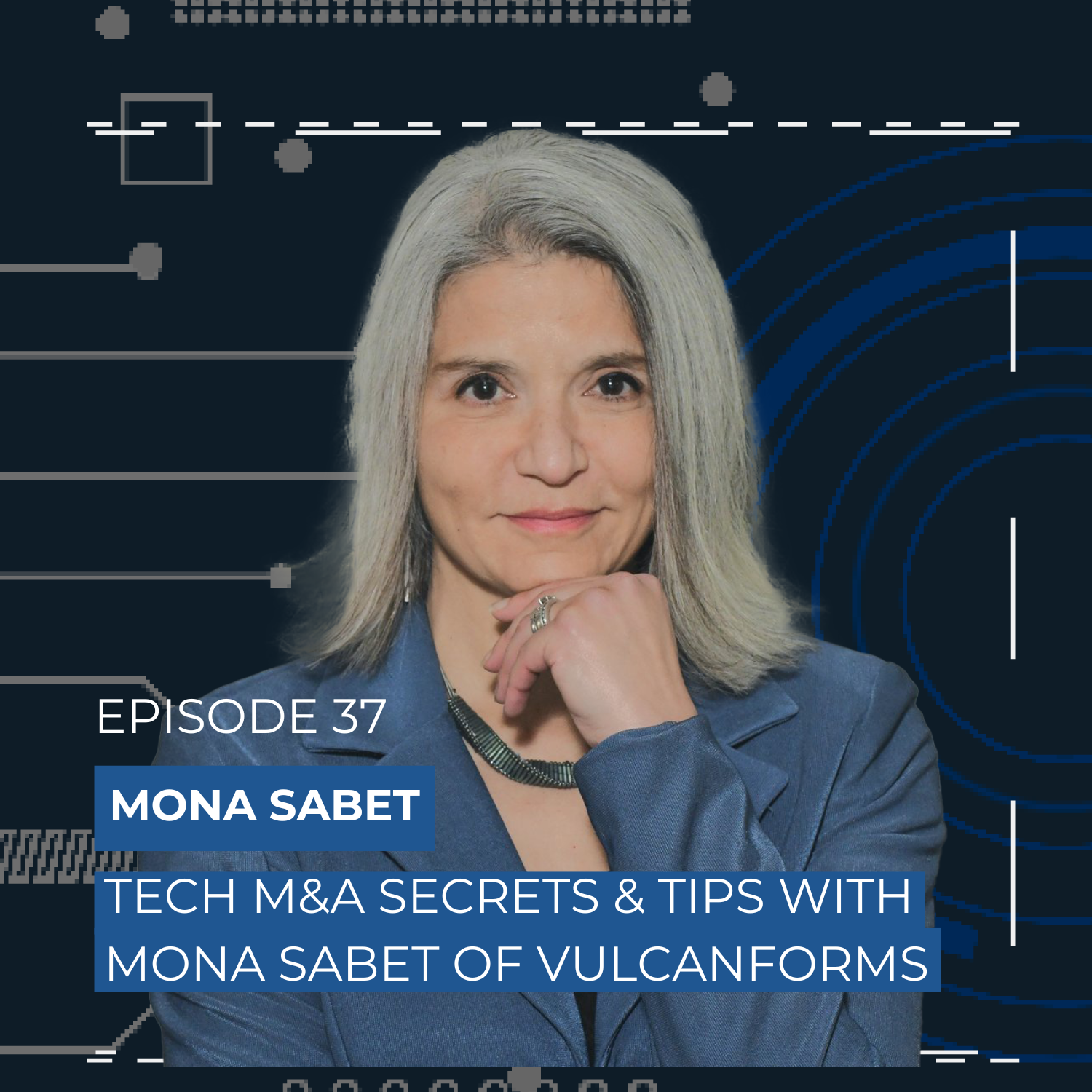
Mergers and acquisitions can be either the most exciting or the most daunting time in an engineering leader’s career. But as long as you prepare and take a strategic approach, you will be good to go!
Our guest today is Mona Sabet. She is incredibly experienced in M&A transactions for tech companies, and she’ll share insights on how to prepare for and accelerate your role during M&A. Mona is a business strategist with a track record of building technology businesses from start to exit, with over 20 years of experience in Silicon Valley. Her leadership extends beyond the C-suite, serving on multiple boards and advisory boards. In the past, she was Chief Corporate Strategy Officer at UserTesting, where she closed four acquisitions, helped lead the company’s $100 million funding round, and took the company public on the New York Stock Exchange.
In this episode of the Scaling Tech podcast, Mona and Arin dive into the world of tech mergers and acquisitions, sharing stories of successful and not-so-successful deals. They explore the crucial role of engineering managers in navigating these transitions, along with the common challenges that many companies encounter during these periods of change.
Learn firsthand from Mona how to turn M&A challenges into opportunities. Don’t miss out on this episode!
ABOUT GUEST
Name: Mona Sabet
What she does: Mona is a business strategist, tech M&A expert, and Chief Corporate Development and Administration Officer at VulcanForms.
Company: VulcanForms
Noteworthy: She is also the co-author of the book Sail to Scale, a business book for startup and scaling leaders.
Where to find Mona: LinkedIn | Website
KEY INSIGHTS
⚡Engineering leaders can play a vital role during M&A deals. As the innovators behind the foundational value of tech companies, the engineering leaders’ expertise is pivotal. But what specific roles do they typically assume, and how can they assist during M&A deals?
Mona says, “Engineers are great at creating things, and engineering managers who have had experience over their careers have had a lot of experience developing their roadmaps and listening to customer needs; the thing that they don’t have much experience in is corporate transactions. They’re not corporate transaction experts. […] I believe the companies need to start learning, and engineers can help them treat acquisitions as a strategy that a company prepares itself for..”
⚡A stable, consistently high-performing engineering team adds value to tech acquisitions. The due diligence process largely centers around the engineering team in tech acquisitions. Mona highlights key evaluating factors.
She says, “The other thing that we’ve always been very focused on when we are interviewing and diligence and engineering team is that we want to see if the team has been together for a while, hasn’t had a ton of turnover, and can consistently deliver on time. And that’s obviously something that companies care about just internally for internal operations. But I don’t think they map that onto how it creates value in an acquisition because if I have to then go and hire a bunch of replacement people because I expect that they’re all going to turnover within a year, we all know how hard it is to hire people and then make them work well as a team and also deliver consistently and on time so having that history really adds, I guess, simplicity to the diligence process.”
⚡Tech acquisitions primarily fail due to integration challenges. Despite what many think, most mergers and acquisitions in the tech space fail due to challenges in integrating the acquired company’s technology, culture, processes, and teams into the buyer’s existing business.
Mona explains, “Experienced acquirers know that oftentimes tech acquisitions will fail, not because the business wasn’t successful before it was acquired, but because it didn’t successfully integrate right into the buyer’s business. And when you think about integration from a product perspective, you start thinking about things that I think a lot of companies and engineering managers don’t often think about in the context of an acquisition. But when we’ve acquired companies, sometimes we’ve found that the tech stack, this is pre-doing many deals, the baby acquirer, you acquire a company, and then you realize you’re operating off of two different tech stacks. When you operate off of two different tech stocks, what eventually happens if you’re trying to integrate the two products together is you have to practically rebuild one of them. And that, again, it just takes the entire value out of everything you paid for.”

